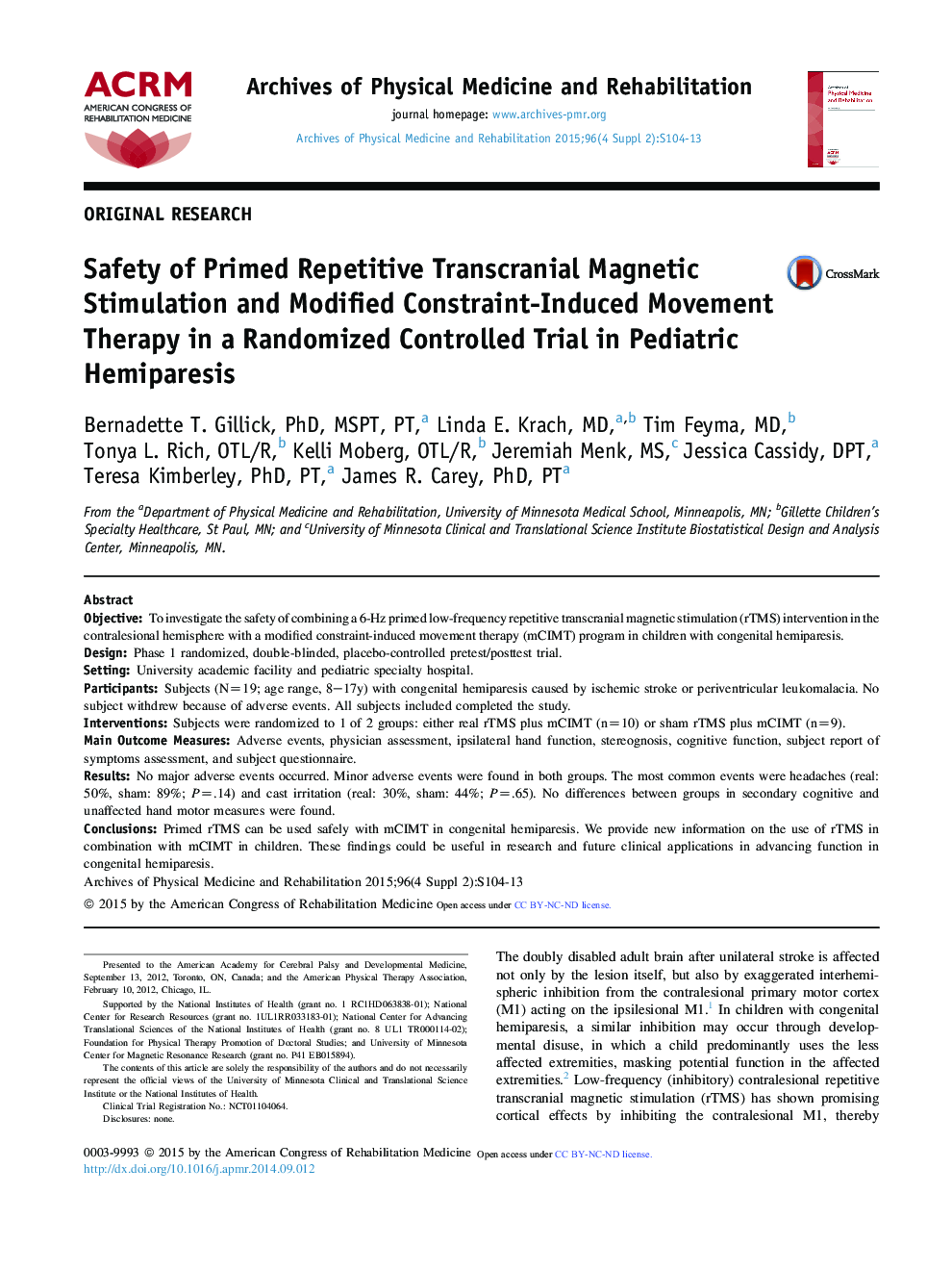| Article ID | Journal | Published Year | Pages | File Type |
|---|---|---|---|---|
| 6149889 | Archives of Physical Medicine and Rehabilitation | 2015 | 10 Pages |
ObjectiveTo investigate the safety of combining a 6-Hz primed low-frequency repetitive transcranial magnetic stimulation (rTMS) intervention in the contralesional hemisphere with a modified constraint-induced movement therapy (mCIMT) program in children with congenital hemiparesis.DesignPhase 1 randomized, double-blinded, placebo-controlled pretest/posttest trial.SettingUniversity academic facility and pediatric specialty hospital.ParticipantsSubjects (N=19; age range, 8-17y) with congenital hemiparesis caused by ischemic stroke or periventricular leukomalacia. No subject withdrew because of adverse events. All subjects included completed the study.InterventionsSubjects were randomized to 1 of 2 groups: either real rTMS plus mCIMT (n=10) or sham rTMS plus mCIMT (n=9).Main Outcome MeasuresAdverse events, physician assessment, ipsilateral hand function, stereognosis, cognitive function, subject report of symptoms assessment, and subject questionnaire.ResultsNo major adverse events occurred. Minor adverse events were found in both groups. The most common events were headaches (real: 50%, sham: 89%; P=.14) and cast irritation (real: 30%, sham: 44%; P=.65). No differences between groups in secondary cognitive and unaffected hand motor measures were found.ConclusionsPrimed rTMS can be used safely with mCIMT in congenital hemiparesis. We provide new information on the use of rTMS in combination with mCIMT in children. These findings could be useful in research and future clinical applications in advancing function in congenital hemiparesis.
